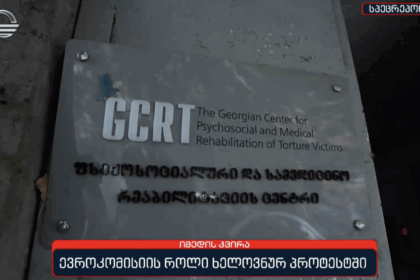**Georgia Introduces Tougher Penalties for Repeated Offenses**
The Georgian Dream parliament has passed amendments to the country’s Code of Administrative Offenses, which will see individuals who fail to pay fines for certain administrative offenses face detention if they repeat the offense. This change affects four specific offenses: petty hooliganism, disobeying police, insulting public officials, and violating protest rules such as blocking roads or wearing face coverings.
These offenses are commonly cited against demonstrators participating in anti-Georgian Dream protests, which have been ongoing since November 2024. The protests began after the Georgian government announced it was abandoning the country’s EU accession process. Critics argue that the hefty fines imposed for these offenses are a repressive tool used by the government to suppress dissent.
**Fines and Detention: A New Era**
Under the new rules, fines for these offenses will increase with repeated violations. However, if an individual fails to pay a previous fine and is found guilty of the same offense again, they will no longer be given another chance to pay a fine. Instead, the court will order detention. The maximum administrative detention period in Georgia has been extended from 15 days to 60 days.
The change also affects the appeals process for fines. Individuals must now appeal directly to the courts, rather than the Interior Ministry. Some lawyers believe this shift will ease the ministry’s workload but add pressure on the judiciary.
**Lawyers Weigh In**
Lawyer Saba Brachveli wrote on Facebook that the state system is shifting the burden onto the courts to handle a growing caseload. Lawyer Nika Simonishvili echoed this concern, stating that cases previously appealed to the Interior Ministry will now be sent to court after 10 days. This means hundreds of individuals who have been fined for blocking roads during protests may face detention if they fail to pay.
**A Repressive Measure?**
The amendments have been widely criticized by watchdog groups, which argue that the hefty fines are a repressive measure used to suppress protests. The fine for road blockage was increased tenfold to GEL 5,000 (about USD 1,800), more than twice the average monthly income in Georgia. Media estimates suggest hundreds of individuals have been fined for blocking roads since November 2024.
**What’s Next?**
The Georgian Young Lawyers Association has stated that road blockage fines since November 28 stood at GEL 2 million (about USD 715,000). As protests continue to block Tbilisi’s main Rustaveli Avenue daily, the new rules will likely have a significant impact on those involved. It remains to be seen how the courts will handle these cases and whether this change will effectively suppress further dissent.
Read More @ civil.ge












